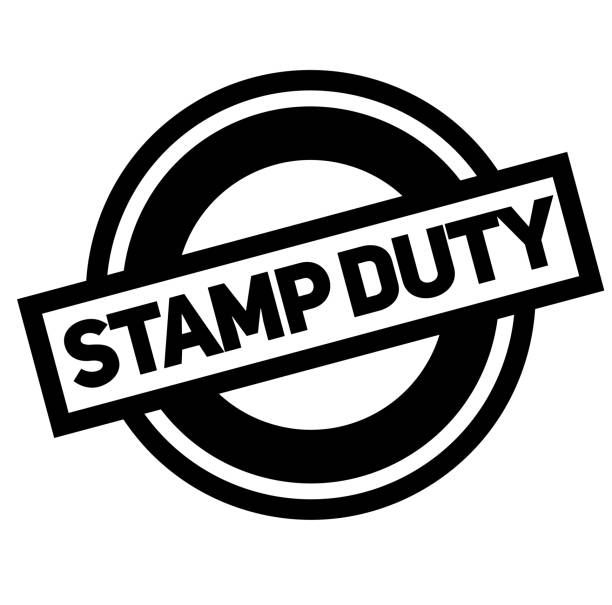Following a divorce or separation, parties often wonder if they have to pay stamp duty on divorce property settlement. Firstly, let’s go over the meaning of these terms. What is stamp duty?
Stamp duty is a form of government tax that applies to certain transactions. For example, parties may need to pay stamp duty when they buy a property, or if someone transfers ownership of property to the party. In many places including NSW, people also refer to it as ‘transfer duty.’
Moreover, divorce property settlement is the division of assets and financial resources that follows after a separation or divorce between two parties. According to Section 79 of the Family Law Act, parties can adjust their property settlement by including transfer of real or other investment property.
Traditionally, this transfer of real property entails stamp duty payment. However, is there a possibility that parties can be exempted from stamp duty payable on divorce property settlement? Yes, this is possible. Read on to find out more.
When discussing stamp duty on divorce property settlement, we are going to focus solely on real property or real estate as part of property settlement. While property settlement includes many other assets such as superannuation, for this blog about stamp duty on divorce property settlement, we’ll specifically look at real estate and real property.
Is There Stamp Duty on Divorce Property Settlement?
When dealing with divorce property settlement where one party is transferring ownership of real property to their former spouse, the question of stamp duty arises. Does the party receiving property through the transfer of ownership need to pay stamp duty?
In fact, Section 163B of the Duties Act 1997 (NSW) states that there is an exemption on stamp duty in case of breakdown of marriage or de facto relationship. In other words, parties do not need to pay stamp duty when they are transferring property to a former spouse or former de facto partner.
However, parties who wish to seek this exemption must ensure that the transfer of property is in accordance to a court order, or a binding financial agreement (BFA). Parties make the BFA, or courts make court orders according to the Family Law Act (1975).

Including Transfer of Property in a Binding Financial Agreement
As mentioned above, parties need not pay stamp duty on divorce property settlement if they include the transfer of ownership of property in a BFA. A binding financial agreement sets out how parties wish to go about with dividing matrimonial property. It includes property and other financial resources that need to be divided after a marriage or de facto relationship ends.
Parties can include many other financial considerations in a BFA, also known as a prenup. As the name suggests, this is a binding agreement made between two parties. It is important for both parties to follow the terms and conditions of the agreement.
Where parties cannot make binding financial agreements, they can approach the court for financial orders. If the court makes such an order for transfer of property, the exemption on stamp duty on divorce property settlement will still apply.
How To Get The Exemption on Stamp Duty?
You may be wondering why stamp duty on divorce property settlements is such an important topic. The reason is, those who are actually eligible for an exemption on this transfer duty can potentially save thousands of dollars. Because it is a tax on property, you can imagine how expensive it will be.
Therefore, if you are going thorough a divorce or separation and are in the midst of transferring property to your former spouse by way of property settlement, read on to find out the steps to follow if exemption applies. There is an exemption that applies if transfer or conveyances of property is being done as part of Section 79 property settlement.
Steps for exemption of stamp duty on divorce property settlement in NSW:
- Firstly, parties looking to waive their stamp duty obligations must get a copy of their court order or BFA. Whichever document is applicable, it needs to clearly state that one party is transferring property to the former spouse or partner.
- Each state may have different ‘Transform’ forms that parties need to fill out. In NSW, the transfer form can be found here. Parties need to download and fill this form out.
- On the Revenue NSW website, parties will find a form titled ‘exemption or refund – breakup of a marriage or de facto relationship.’ They must download and complete this form as well.
- From the same website above, they must download and complete the ‘Purchaser declaration form’. It can be found here.
- Parties must then send these completed documents to Revenue NSW for them to take note of stamp duty exemption on divorce property settlement.
- If they approve it, Revenue NSW will send the Transfer form back to the parties. If approved, it will stamped and marked ‘Exempt from stamp duty.’
- Lastly, parties will need to lodge that Transfer document at the NSW Land and Registry Services. They should lodge this along with other documents such as the Certificate of Title, Notice of Sale, Discharge of Mortgage as well as the fee.

Seek Advice From Conveyancers and Family Lawyers
There are multiple legal steps involved in divorce or separation cases. People need to be aware of their obligations following the breakdown of their relationship. Moreover, they have to settle and finalise many matters including property settlement.
Family lawyers are experts in dealing with all legal procedures following a separation or divorce. They can help you draft BFAs or consent orders, or even help you make applications for parenting or financial orders from the family court. Moreover, our experts can explain requirements for stamp duty exemptions.
But, when dealing with transfer of real property as part of family law property settlements, you should also seek advice from conveyancing solicitors. At JB Solicitors, we have an excellent team of both family lawyers and conveyancing solicitors.
We offer market-leading advice for issues that fall under family law as well as property law or conveyancing. If you require information about any of these matters, do not hesitate to call our office today.
Contact us for more information.
